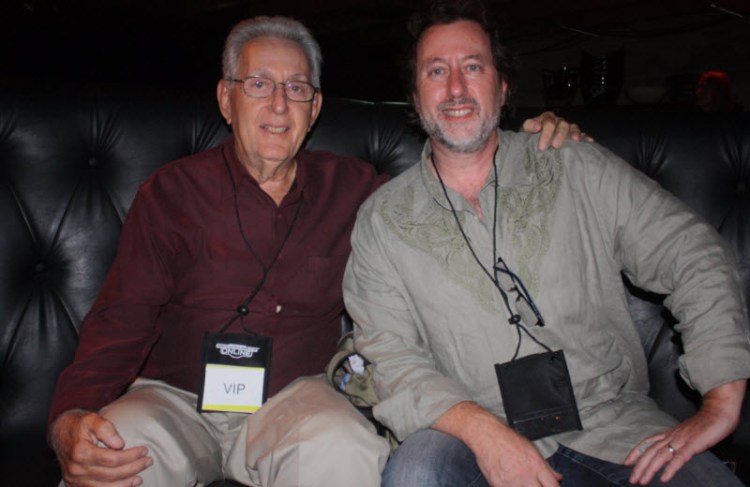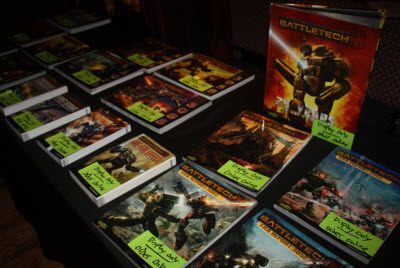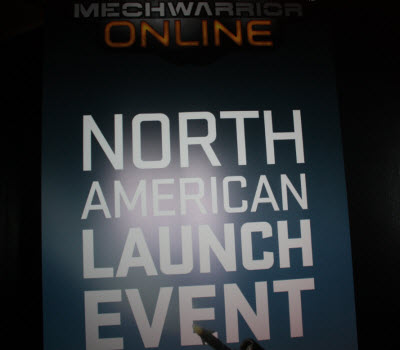GamesBeat: Hawken is out. This is coming out. It looks like Titanfall is going to be next. I don’t know what explains the sudden surge in mech games.
Weisman: I think all entertainment is somewhat cyclical. Vampires are in and then vampires are out for a decade and then they come back in. I tried to do a pirate movie years ago. I wanted to get the rights to Captain Blood, that great movie with Errol Flynn. Every studio told me, “There will never be another pirate movie.” Everything goes in and out.
In this case, I do think that one of the things kicking this off was the trailer that Bryan and Russ and I made. It showed what the potential was a couple of years ago. It got people excited and thinking, “Hey, maybe it’s time for that stuff to come back.” I don’t know how much of a factor that was, but it was certainly out there before this resurgence took place.
GamesBeat: How well has this done so far?
Weisman: I’m not in a position to talk about that. You should grill Kelly Zmak and Russ and Bryan. But I think it’s off to a very good start.
GamesBeat: Going head-to-head against Hawken — did you guys see anything? They’re obviously different than MechWarrior. But is there anything you’ve seen that would say why one’s succeeding more than the other?
Weisman: Well, I honestly don’t know how Hawken has been doing. I’ve been head-down on Shadowrun and Golem Arcana. The games are pretty different. Hawken took on much more of a shooter dynamic, whereas MechWarrior Online returned to the roots of MechWarrior with a vehicle sim. Hawken is much closer to where MechWarrior 4 and the beginnings of MechWarrior 5 were going, where it became more of a shooter, more arcade-like. This one, I think, is going back to where it always had its heyday, when it was more like a simulator.
GamesBeat: It sounds a lot like World of Tanks in that way.
Weisman: Absolutely. If you look at World of Tanks and compare it to the 1992 MechWarrior Online that we did on the GEnie network, when people paid six bucks an hour to go online, World of Tanks is a direct descendant of what we did in those days. It’s a formula that works when it’s done right. To me, what’s most impressive about World of Tanks is that when that game first came out, it was crap. But they just worked it and worked it and it got better and better. It’s phenomenal.
GamesBeat: Do you think the mech theme has the potential to grow as big as something like that, to rise above what might have been more of a niche market in the past?
Weisman: Overall, in the 30 years since MechWarrior’s creation, we’ve seen geek culture conquer popular culture. If you look at the vast majority of Hollywood and video games and even publishing, with the dominance of fantasy in YA, I do think that geek culture is much broader now than it was in those days. The market potential is higher as well.
GamesBeat: This is also one of those projects that might do well with the Oculus Rift. There’s a new dimension to explore there.
Weisman: With the creation of the Virtual World Center, back in ’87, we were very early into the virtual reality component. We played with a lot of headset stuff back in the day. But in those days, the headsets were too big and heavy and bulky. The resolution was too low. The Oculus Rift obviously solves a lot of that. It’s a beautiful device. But it is a different software development, to make sure that doesn’t become a vomitorium. You really have to tweak your game for it. I don’t know if these guys are planning to do that. But it would be a good fit from a property standpoint and a gameplay standpoint.
GamesBeat: What would you say is the right way to play this game?
Weisman: I’ve not played it as much as I would like to, because I’ve been busy making other games. But I’ve logged in a fair number of hours. I love the way they’ve brought that sim nature back. All the different sub-systems are modeled out in detail. It combines to create really tactical play. The visuals are great. The world looks wonderful, and the connection between the ‘Mech and the environment – which is a very hard thing to do right – I think they got that. Another thing that’s hard to do with the visuals is to keep the scale of the ‘Mechs correct, so they feel big and powerful. If you do it wrong, they just look like toys. I think they nailed that. They still have that kind of gravitas to them, that scale factor that’s so important.
GamesBeat: There’s an e-sports angle that’s getting interesting here. You can see it at this event.
Weisman: That’s been in the property since the beginning. Back in ’89, when we launched the BattleTech Center, we started eSports back then by having tournaments and leagues. We hosted the first world BattleTech multiplayer competition in 1992. We had representatives from 12 countries around the world playing in real time. It’s at the core of the property, and it’s great to see it coming back in a robust way.
GamesBeat: They seem to have quite a culture around the game. Everyone’s getting into it.
Weisman: Yeah, it lends itself really well. It’s nice that they’re supporting the breadth of BattleTech and MechWarrior, with tabletop and online and the various versions of the software, from the squad-based tactical game to the first-person simulation.
GamesBeat: You could sell it back to Microsoft now.
Weisman: [Laughs] You know, we’ve had some interesting discussions. But Microsoft, I think, has become a good partner. They’ve been very supportive of all the efforts we’ve been working on. We’re adding value to a property they own, so why wouldn’t they be?
VentureBeat's mission is to be a digital town square for technical decision-makers to gain knowledge about transformative enterprise technology and transact. Learn More



